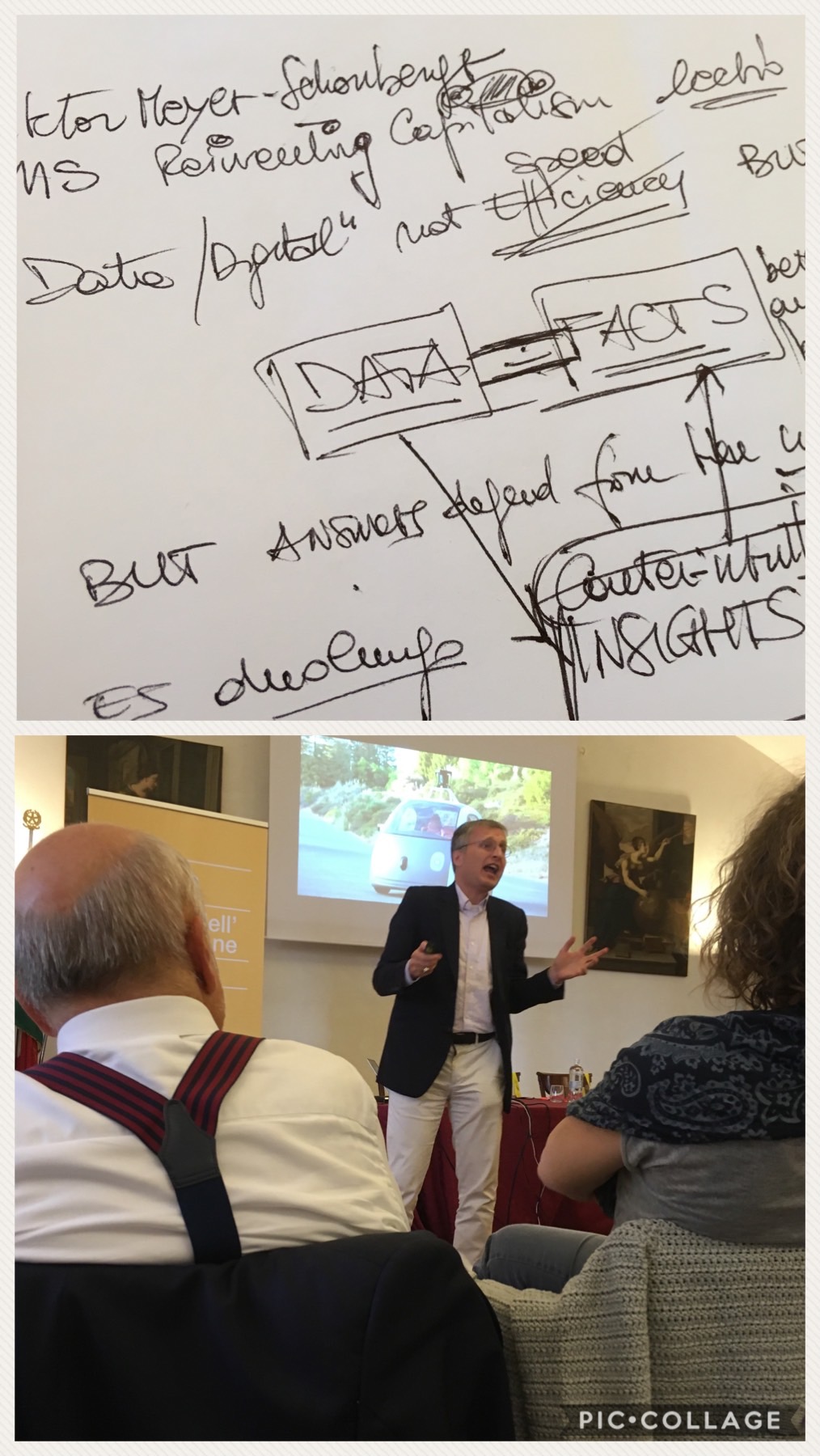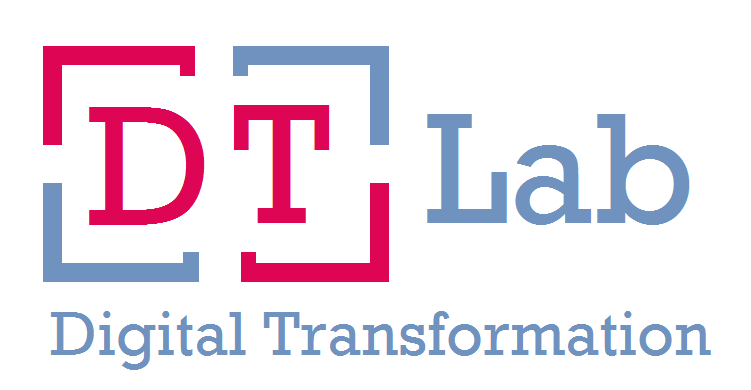by Marco Paiola
Having Viktor Mayer-Schoenberger speaking in Padua, presenting his last work “Reinventing Capitalism In The Age Of Big Data” is not business-as-usual.
So, like many colleagues and students, some days ago I was in the beautiful Palazzo Moroni, just a seat behind the great Franco Malerba, the first Italian astronaut (yes, the one with the coloured strapes).
The parallel between discovering the infinite galaxy space and the vast future economic space of rich-data has been the fil rouge of Viktor’s speech, whose basic idea is that most of nowadays’ businesses and (even successful) companies are thriving on hierarchical old-fashioned decision-making rules and mechanisms: even Jeff Bezos’ widely acknowledged Amazon’s e-commerce business model, with its old-style organizational centralization, is in a sense a passing phase towards a new breed of companies. Post -2000 companies mentioned by Viktor are decentralized and flat organizations, centered on rich-data solutions and smart businesses, leveraging on an unprecedented density of fine-grained, super-detailed, redundant data lakes regarding customers preferences and behaviours. Eventually, the big transition will lead us all beyond the simplistic and mostly un-sophisticated price-based decision-making habit, finally taking into full consideration all the different levers that in fact condition our purchase and life decisions. This transition will eventually welcome the wealth of specific details and (also counterintuitive) insights that facts are capable to show us when properly registered and considered, underlining that we make a lot of decisions simply not knowing enough, like in the case we buy looking only at the price label.
Although I did book for the final Q&A, time was up and unfortunately I wasn’t able to ask Viktor to solve a doubt that his words instilled in me. Since complexity reduction and simplicity have always been basic requirements for human beings in order to be able to make decisions (I teach business management, and textbooks still use bi-dimensional matrix to make the awkwardness of markets understandable…), the evolution he foresees induces me to think that in the near future, both companies’ and customers’ activities will undergo a great deal of change, and a new generation of decision-making gears will have to be provided. On the one hand, firms (also our beloved small and medium-sized manufacturing companies) will have to invest heavily in Artificial Intelligence technologies and capabilities, not mentioning advanced knowledge management instruments and practices, in order to cope with this data richness escalation. On the other hand, also the consumers’ world is going to change a lot, since to reconcile ourselves with the apparently unavoidable data-rich future, our decision-making habits will have to be at least upgraded, and a resort to technologies that help and booster our biological cognitive processes will be necessary.
Here lies my doubt, and the questions I would have wanted to ask Viktor: are we free to go on with the old-school rule of thumb? Or will we be increasingly (and indefinitely) dependant on Artificial Intelligence and Machine Learning services and platforms like Google or the like? Or are we going to buy, train and maintain personal AI robots in order to effectively balance all the complicated considerations that data-rich economies imply? In a nutshell, what is there actually at stake here for us as consumers, citizens and human beings?
I’ll go looking for the answers in Viktor’s last book, but by now a fact seems quite clear to me: with data-rich capitalism, things will never be the same.

